Virginia Gutter Repair & Replacement
Contents
Virginia homeowners face a serious risk during every rainstorm - just one inch of rainfall on a roof can channel more than 600 gallons of water directly toward your foundation. Without reliable gutters and properly positioned downspouts, this runoff creates hydrostatic pressure, soil erosion, and moisture buildup that weaken your home’s structural integrity over time. Foundation cracks, basement leaks, and costly water damage repairs often result from clogged, damaged, or poorly maintained gutter systems. In Virginia, where intense summer thunderstorms and heavy rainfall are common, grading alone is not enough to protect your home.
A durable gutter system - aluminum, copper, steel, or seamless - combined with proper downspout extensions and regular maintenance, is your first line of defense. Effective gutters not only prevent foundation damage and mold growth but also extend your roof’s lifespan and preserve property value. This guide shows how Virginia gutter systems safeguard your home through smart design, seasonal maintenance, and modern waterproofing solutions.
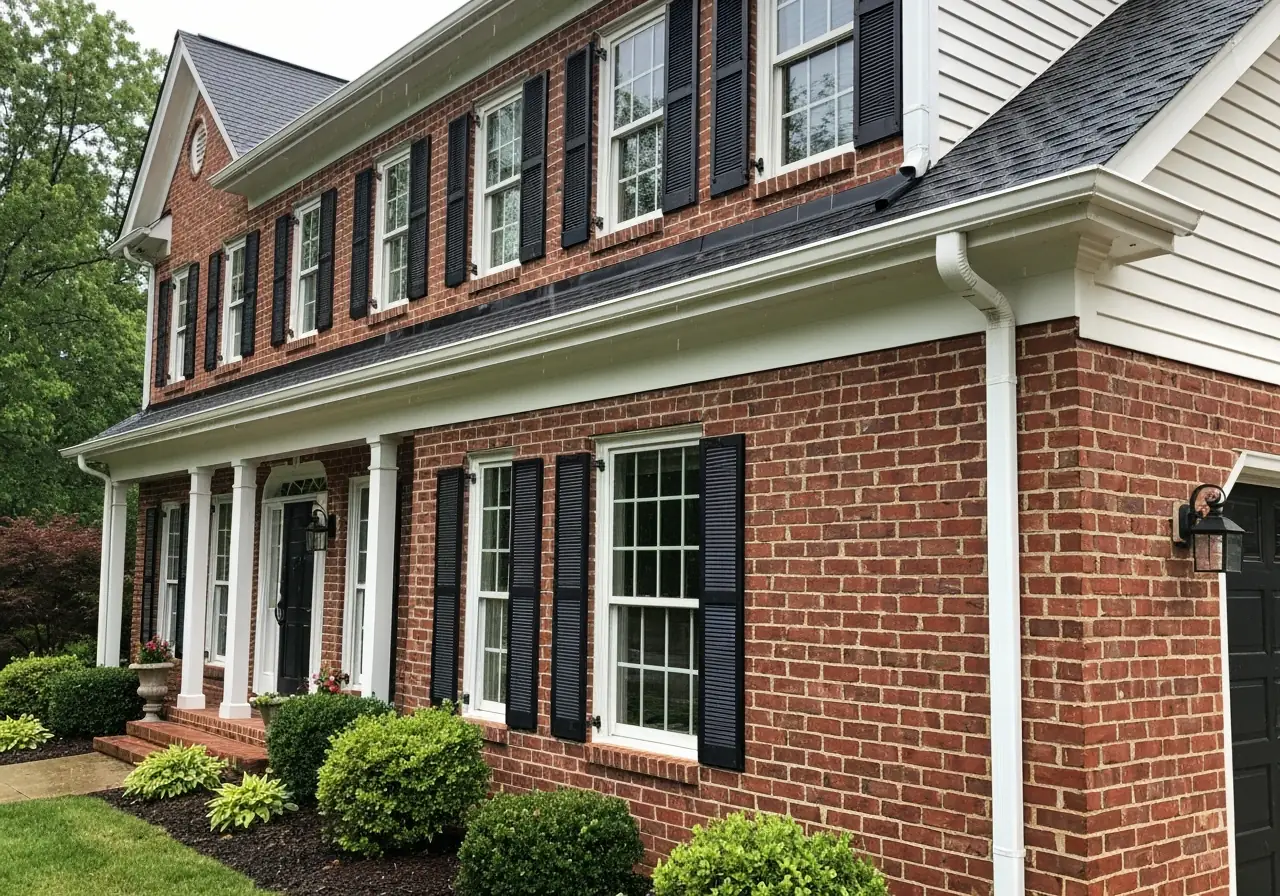
How Gutters and Downspouts Protect Your Foundation
Foundation vulnerability to water damage stems primarily from uncontrolled roof runoff. One inch of rainfall on a 1,000-square-foot roof generates over 600 gallons of water that requires strategic redirection - without proper management systems, this volume flows directly to your foundation, potentially leading to water seepage and the need for extensive basement waterproofing.
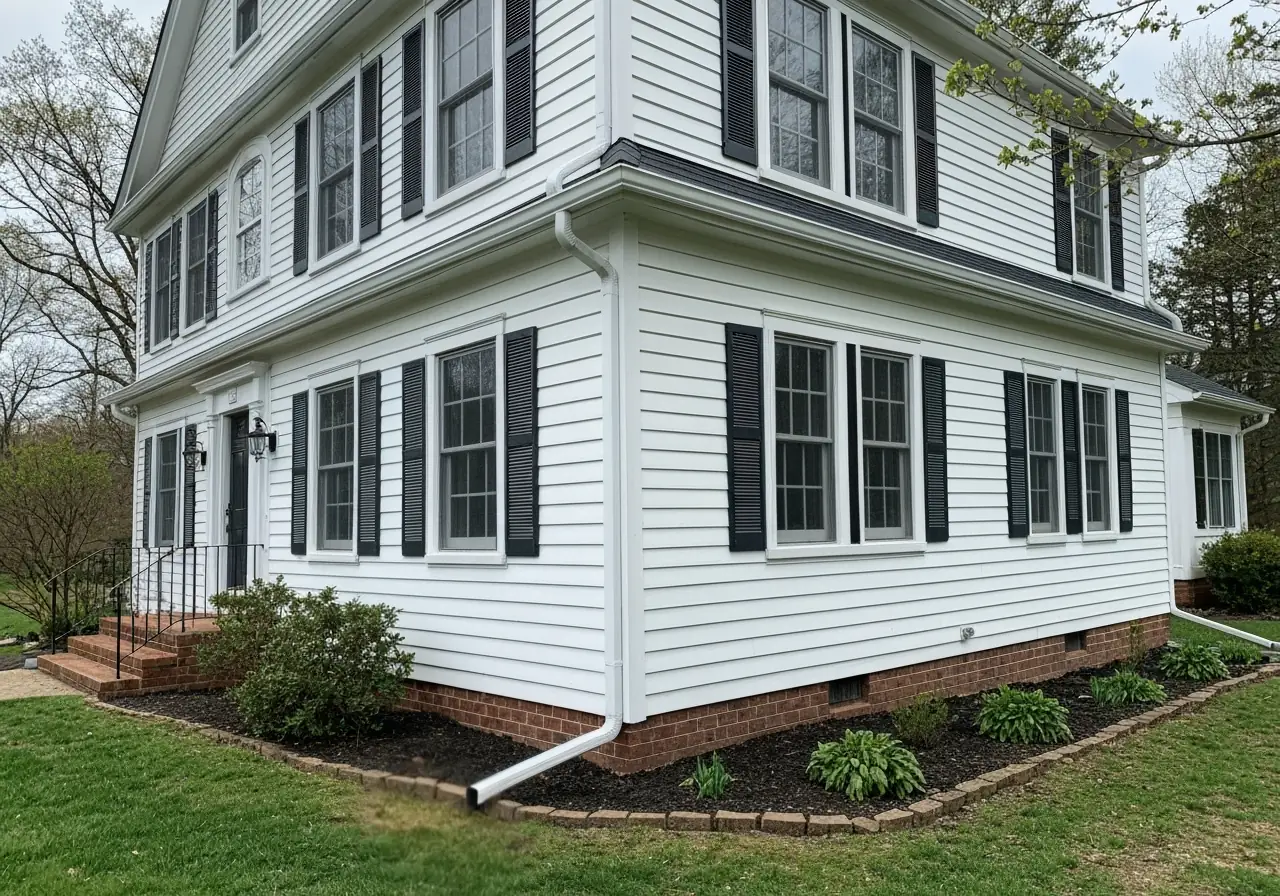
Why water control matters in Virginia
Virginia's seasonal weather patterns create unique water management challenges for property owners. Coastal areas like Virginia Beach face particularly severe risks, with approximately 38% of properties already confronting flood damage threats. Water-related problems consistently rank among the primary causes of foundation deterioration throughout the state, emphasizing the importance of comprehensive home waterproofing solutions.
The soil composition across Virginia compounds these water challenges significantly. Expansive soils dominate the region, functioning like natural sponges that expand during wet periods and contract when moisture levels drop. This cyclical movement generates up to 5,500 pounds per square foot of pressure against foundation corners and structural edges. The financial impact of expansive soil problems exceeds the combined damage from earthquakes, floods, hurricanes, and tornadoes nationally, highlighting the critical need for effective basement waterproofing and foundation protection measures.
How gutters and downspouts work together
Effective foundation protection requires coordinated gutter and downspout systems working in precise harmony. Gutters collect and channel rainwater from roof edges while downspouts transport this collected volume safely to ground level and away from structural elements. This system forms a crucial part of your home's overall waterproofing strategy.
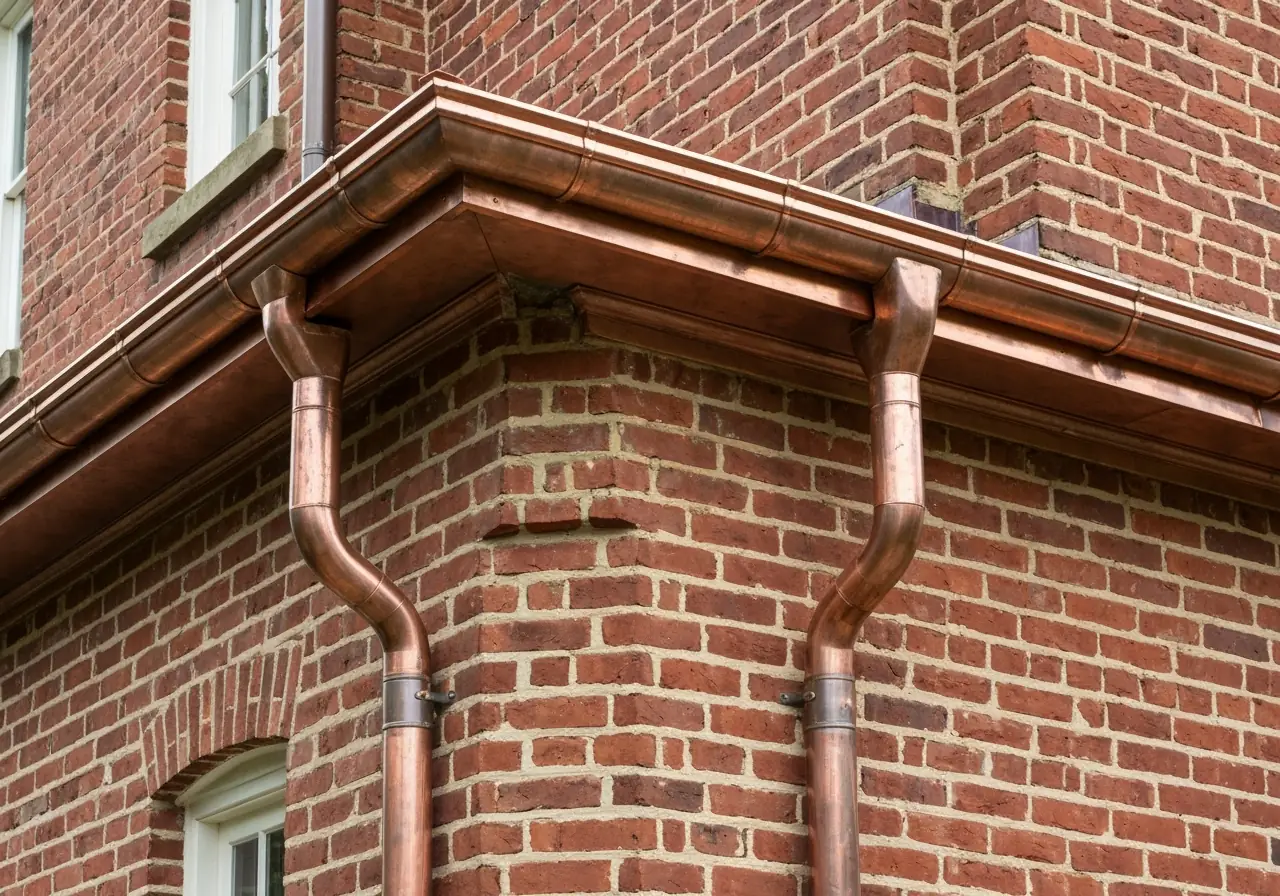
Strategic downspout placement follows specific guidelines for optimal performance:
- Position at every house corner
- Install every 20-30 feet along gutter runs
- Maintain minimum 10-foot distance from foundation using downspout extensions
Proper gutter slope ensures consistent water flow without compromising structural attachment. Engineers recommend ¼" to ½" slope for every 10 feet of gutter length. This gradient maintains adequate drainage velocity while preventing excessive stress on mounting hardware.
Common causes of foundation water damage
Foundation deterioration typically results from four primary water-related mechanisms:
- Hydrostatic pressure buildup: Saturated soil surrounding foundations creates immense pressure that forces moisture penetration through concrete pores, initiating crack formation and necessitating foundation repair.
- Supportive soil erosion: Uncontrolled rainwater impacts create forceful ground contact, systematically washing away soil that provides structural foundation support. This erosion can be mitigated with proper drainage solutions and exterior waterproofing techniques.
- Expansive soil cycling: Inconsistent moisture levels trigger repeated expansion and contraction cycles, creating continuous stress against foundation walls. This process can lead to basement wall cracks and other structural issues.
- Inadequate downspout positioning: Downspouts terminating too close to structures allow water accumulation near foundations, where it infiltrates through minor cracks and compromises structural integrity. Proper downspout extensions are crucial for directing water away from the home.
Don’t let Virginia’s heavy rain and expansive soils put your foundation at risk. If your gutters or downspouts aren’t properly directing water away from your home, the damage can be costly. Protect your investment with expert gutter installation, repair, and maintenance. Schedule your free inspection with My Modern Renovations today and safeguard your foundation before the next storm hits.
Choosing the Right Gutter System for Virginia Homes
Material selection for Virginia gutter systems requires evidence-based analysis of regional climate challenges. Summer thunderstorms, winter freeze-thaw cycles, and humid conditions create specific performance requirements that separate superior materials from marginal choices. The right system plays a crucial role in your overall home waterproofing strategy.
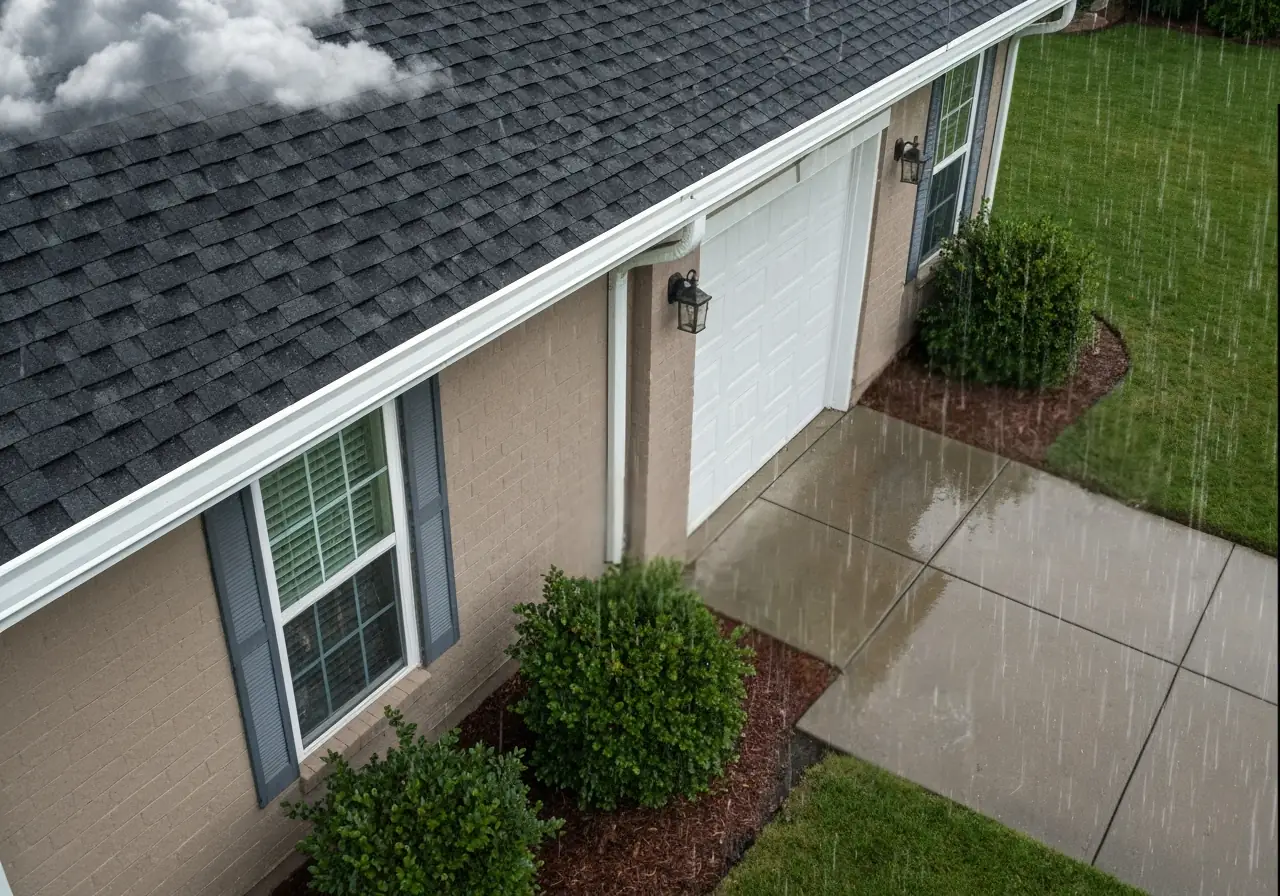
Aluminum vs. copper vs. steel gutters
Virginia homeowners face three primary material options, each delivering distinct performance characteristics:
Aluminum gutters command the residential market through their optimal balance of durability and cost-effectiveness. These lightweight systems resist Virginia's humid conditions without corrosion while lasting 20-30 years under proper maintenance protocols. Available in extensive color ranges for exterior matching, aluminum provides exceptional value for most Virginia properties.
Copper gutters represent the premium investment for homeowners prioritizing longevity over initial cost. Properly maintained copper systems deliver 50+ year lifespans, developing distinctive patina that enhances architectural character over time. While copper requires substantial upfront investment, its corrosion resistance proves particularly valuable against Virginia's variable climate conditions.
Steel gutters offer maximum structural strength for properties experiencing occasional heavy snow loads. Galvanized steel initially resists rust effectively, yet demands vigilant maintenance to prevent corrosion - especially critical in Virginia's high-humidity environments. Steel systems typically provide 20-40 years of service but require more intensive upkeep than alternative materials.
Seamless gutters and their benefits
Seamless gutter technology has gained widespread adoption throughout Virginia due to its elimination of seam-related failure points. Unlike traditional sectional systems with multiple connection vulnerabilities, seamless gutters receive on-site fabrication to exact home measurements.
This precision manufacturing significantly reduces leakage potential and debris accumulation zones. Seamless systems prove particularly effective during Virginia's intense summer rainfall events, delivering superior foundation protection through enhanced water management. The improved efficiency and extended durability translate to reduced repair frequency and replacement costs over the system's lifespan, making them an integral part of comprehensive waterproofing systems.
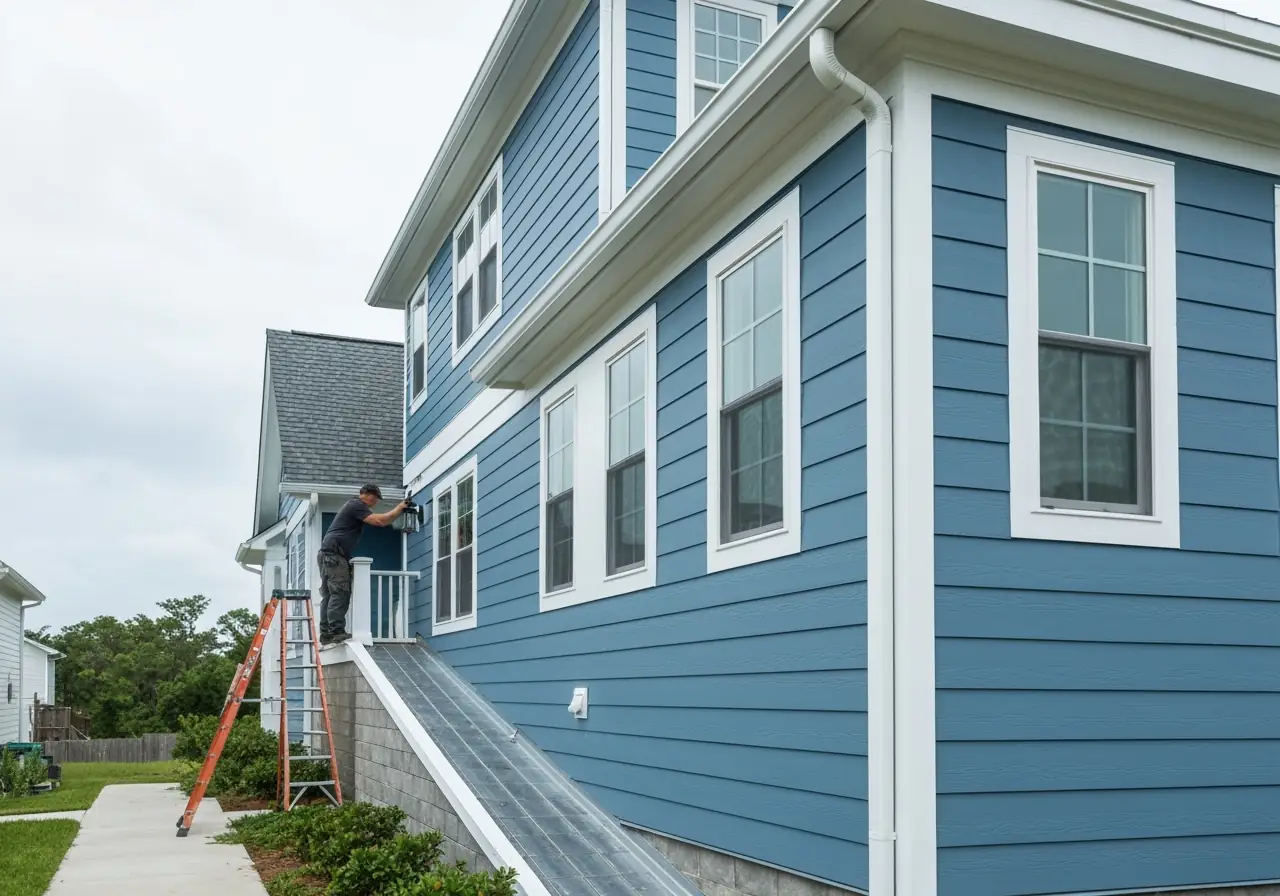
Downspouts for rain gutters: what to consider
Downspout specifications directly impact your gutter system's water management effectiveness. Standard sizing includes 2"x3" and 3"x4" rectangular profiles or 3-4 inch diameter options. Optimal drainage requires one downspout for every 20-25 feet of guttering.
Strategic placement ensures maximum efficiency - position downspouts at building corners whenever possible. Material compatibility between gutters and downspouts prevents corrosion issues that compromise system integrity. Specific sizing requirements dictate that 6-inch K-style gutters require 3"x4" downspouts while 5-inch K-style systems utilize 2"x3" downspouts.
Foundation protection demands that downspouts extend 4-6 feet minimum from structural elements. This critical distance prevents water infiltration into foundation or basement areas, maintaining the structural integrity that proper gutter systems exist to protect. Consider installing downspout extensions to further direct water away from your home's foundation.
Protect your Virginia home with the right gutter system. From aluminum to seamless designs, we install gutters built for durability and foundation safety. Get expert gutter installation from My Modern Renovations.
Seasonal Challenges and Maintenance Tips
Virginia's changing weather patterns demand a systematic maintenance approach that addresses specific seasonal threats to your gutter system's effectiveness. Regular maintenance is crucial for preserving your home's waterproofing systems and preventing water damage.
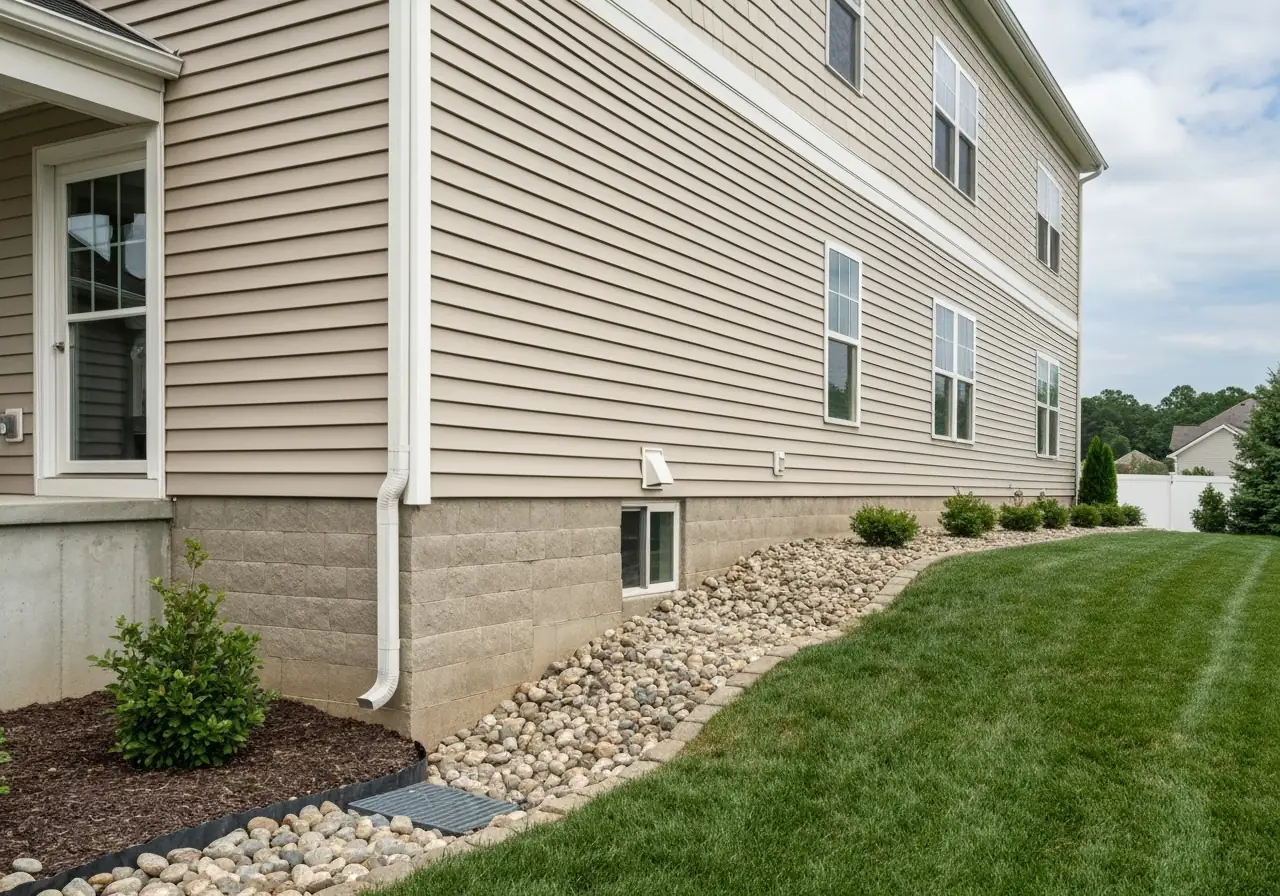
Fall leaf buildup and cleaning tips
Autumn leaf accumulation creates the year's most significant maintenance challenge. Schedule thorough cleanings after peak leaf drop - typically mid-October and late November. This timing captures the majority of deciduous debris before winter weather arrives.
Downspout screens provide essential protection against large debris while maintaining water flow capacity. Properties surrounded by mature trees require quarterly cleaning cycles, compared to the standard twice-yearly schedule for less tree-dense locations. The frequency difference reflects the substantial debris load that can overwhelm even well-designed gutter systems.
Winter ice dams and heated gutter guards
Ice dam formation occurs when roof heat creates uneven snow melting, causing refreezing at gutter edges that forces water under roofing materials. Proper attic insulation maintains consistent roof temperatures, preventing this destructive cycle.
Pre-freeze preparation matters significantly. Clear all debris before the first hard freeze. After significant snowfall, carefully remove heavy ice accumulation and employ roof rakes to manage excess snow loads. Heated gutter guards offer effective solutions for properties experiencing persistent ice dam issues, helping to prevent water stains and other signs of moisture infiltration.
Spring inspections and gutter flushing
Winter's end brings accumulated debris including pollen, pine needles, and tree seedlings that require thorough removal. Garden hose flushing reveals leaks, drainage issues, and areas needing repair attention. Spring maintenance becomes particularly critical before Virginia's heavy rainfall season begins.
The inspection process should include examining joint connections, testing water flow patterns, and verifying proper slope maintenance. Early detection prevents overflow problems during peak storm periods. This is also an ideal time for a comprehensive basement inspection to identify any signs of water seepage or basement moisture issues that may have developed over the winter months.
Cleaning frequency and methodology
Expert recommendations establish twice-yearly cleaning as the minimum standard - spring and fall. However, properties near tall pines or mature oaks demand quarterly attention to prevent blockage-related problems. Regular maintenance prevents basement flooding and can save up to 30% on repair costs.
Proper cleaning technique starts from the end opposite your downspout, preventing debris accumulation at critical drainage points. This systematic approach ensures thorough removal without creating downstream blockages that compromise system effectiveness.
Modern Solutions for Long-Term Protection
Technology transforms traditional gutter maintenance from reactive repairs to proactive prevention. Virginia homeowners now access sophisticated solutions that eliminate recurring maintenance burdens while providing superior foundation protection and enhancing overall home waterproofing.
Installing gutter guards and leaf filters
Micro-mesh gutter guard technology creates an impenetrable barrier against debris while maintaining optimal water flow capacity. LeafFilter's surgical-grade stainless steel construction withstands coastal salt air and handles heavy Chesapeake Bay downpours. These advanced systems effectively block everything from oak leaves in Richmond's historic districts to pine needles in Virginia Beach.
The installation transforms your gutter maintenance equation entirely. Quality gutter protection systems significantly reduce maintenance requirements while extending overall system lifespan. This technology shift represents a fundamental change from periodic cleaning cycles to virtually maintenance-free operation, complementing other waterproofing systems in your home.
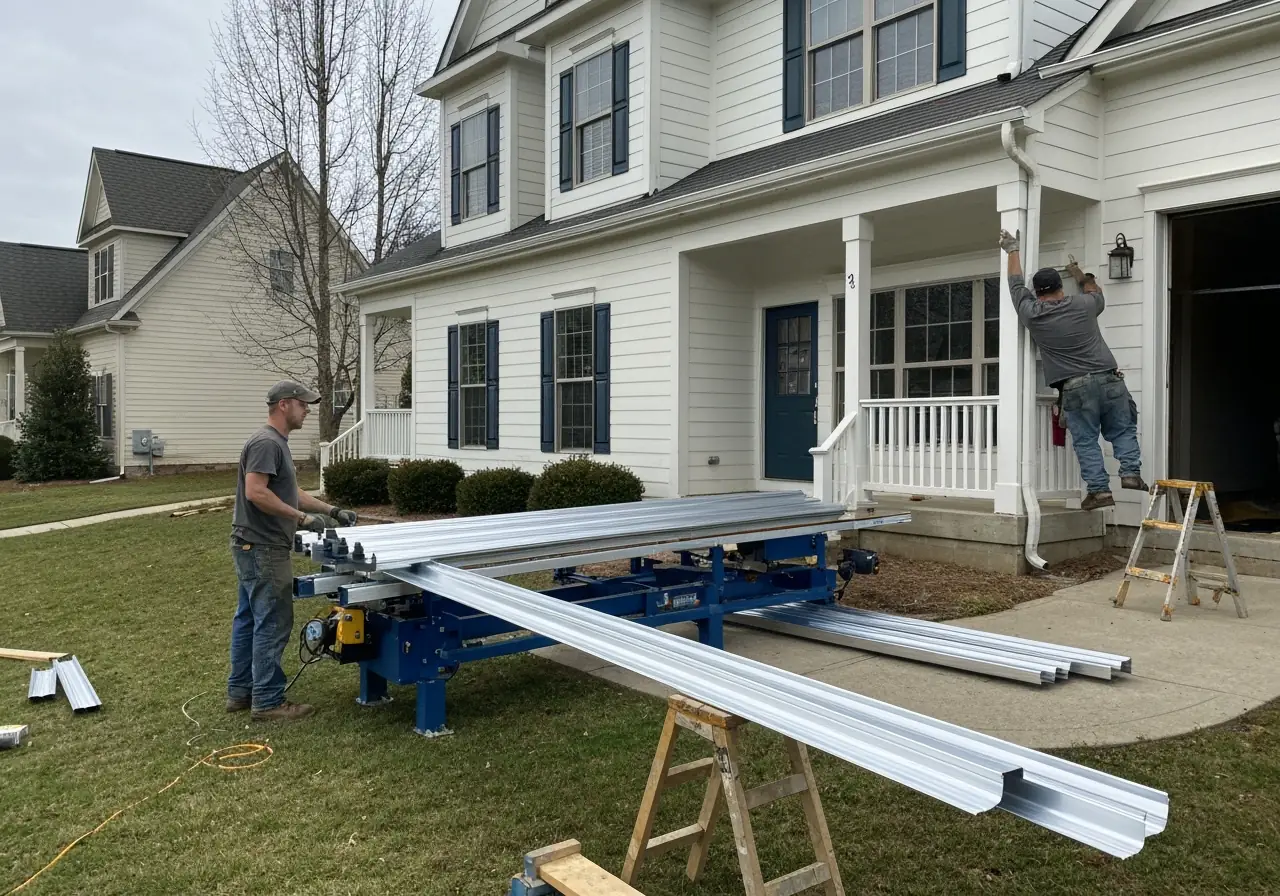
Smart sensors and water flow alerts
Water damage ranks as the second leading cause of property damage, with approximately one in 60 insured homes filing water damage claims annually. Smart detection technology identifies problems before they escalate into costly disasters.
Modern leak detection systems monitor multiple threat vectors simultaneously. These devices detect pooling water, trigger immediate alarms, and send smartphone notifications. Advanced monitoring systems analyze water usage patterns throughout your property, identifying both sudden pressure surges and continuous low-volume leaks that signal developing problems. The early warning capability prevents minor issues from becoming major foundation threats and helps maintain the integrity of your basement waterproofing.
How to bury downspouts gutters for better drainage
Underground drainage systems provide permanent water redirection away from foundation zones. The installation process requires strategic route planning, durable material selection like PVC or corrugated pipe, proper trench excavation with adequate slope, secure pipe connections, and thorough system testing.
This approach eliminates surface water management issues while maintaining landscape aesthetics. Always install splash blocks where buried downspouts terminate to prevent soil erosion. The underground system handles Virginia's heaviest rainfall events without creating surface drainage problems, effectively complementing your exterior drainage systems and waterproofing efforts.
When to consider Virginia gutter repair or replacement
Virginia homeowners should consider gutter replacement when systems show extensive structural damage, persistent leaks even after repairs, bent sections that disrupt water flow, or large holes that compromise integrity. In these cases, repair costs often outweigh the value of a full replacement. For smaller issues - such as minor leaks, loose fasteners, or isolated sections - targeted repairs may be sufficient. The key is determining whether the problem stems from normal wear or a deeper system failure that threatens foundation protection. Regular basement inspections can also reveal early signs of gutter-related water damage.
If your gutters are showing signs of failure, don’t wait until foundation repairs become necessary. Contact My Modern Renovations for expert Virginia gutter repair and replacement services. Our licensed team delivers durable installations, seamless systems, and maintenance solutions designed to protect your home from water damage for decades.
Conclusion
Protecting your Virginia home’s foundation starts with effective water management. Gutters and downspouts are not optional - they are essential infrastructure that safeguard structural integrity, property value, and long-term durability. In Virginia’s demanding climate, with heavy rainfall, summer thunderstorms, and freeze-thaw cycles, only properly installed and maintained gutter systems can prevent foundation cracks, basement leaks, soil erosion, and costly water damage repairs. Aluminum gutters offer the best cost-to-durability balance for most Virginia properties, while copper delivers unmatched longevity and steel provides extra strength where needed. Seasonal maintenance, including twice-yearly cleaning and ice dam prevention, ensures maximum performance.
Modern upgrades like seamless gutters, micro-mesh gutter guards, buried downspout extensions, and smart leak detection transform protection into a proactive system. Investing in quality Virginia gutter installation today prevents thousands in future foundation repair costs and guarantees decades of reliable protection.
Protecting your Virginia foundation means having gutters and downspouts that work year-round. Durable materials, seamless designs, and seasonal upkeep prevent cracks, leaks, and costly water damage. Modern upgrades like gutter guards and smart leak detection add extra protection. Invest in quality Virginia gutter installation today to secure your home’s value and structural integrity.
Key Takeaways
Protecting your Virginia home's foundation from water damage requires a comprehensive approach to gutter and downspout management that addresses seasonal challenges and leverages modern solutions, including advanced waterproofing systems.
• Install proper drainage systems: Position downspouts every 20-30 feet and extend them at least 10 feet from your foundation to prevent hydrostatic pressure buildup. Consider incorporating exterior drainage systems and interior drainage systems for enhanced protection.
• Choose materials wisely: Aluminum gutters offer the best cost-to-durability ratio for Virginia's climate, lasting 20-30 years with proper maintenance.
• Maintain seasonal schedules: Clean gutters twice yearly minimum, with quarterly cleaning for tree-heavy properties to prevent costly overflow damage. Regular maintenance is crucial for preserving your home waterproofing efforts.
• Upgrade to modern protection: Install micro-mesh gutter guards and smart water sensors to reduce maintenance needs while providing superior foundation protection. These technologies complement your overall waterproofing systems.
• Address problems early: Minor gutter repairs cost significantly less than foundation damage, which can result from just one inch of rainfall generating 600+ gallons of runoff. Regular basement inspections can help identify potential issues before they escalate.
Proper gutter systems aren't just about convenience - they're essential infrastructure that prevents foundation cracks, basement flooding, and structural damage that can cost thousands to repair. Virginia's intense storms and expansive soils make this protection even more critical for long-term home value preservation. Integrating these systems with comprehensive basement waterproofing and exterior waterproofing measures provides a robust defense against water-related damage to your home.
FAQs
Q1. How far should downspouts extend from the foundation? Ideally, downspouts should extend 5 to 6 feet away from your home's foundation. This distance helps prevent water from pooling near the foundation and causing potential damage. Ensure the extension is angled at least 30 degrees relative to the ground for proper water flow. Downspout extensions can significantly enhance your home's waterproofing effectiveness.
Q2. Can clogged gutters lead to foundation issues? Yes, clogged gutters can cause serious foundation problems. When gutters overflow due to blockages, water can pool around the foundation, creating hydrostatic pressure. This pressure can eventually lead to cracks, bowing walls, and other foundation damage, potentially requiring extensive foundation repair.
Q3. How can I prevent soil erosion near downspouts? To prevent erosion, install a concrete or plastic splash block at the end of the downspout. This directs water flow away from the foundation. If erosion persists, place fist-sized or smaller stones along the water's path to protect the underlying soil. For a more comprehensive solution, consider installing exterior drainage systems or retaining walls to manage water flow and prevent soil erosion.
Q4. How often should gutters be cleaned in Virginia? In Virginia, gutters should be cleaned at least twice a year, typically in spring and fall. However, homes near trees, especially those with heavy foliage, may require quarterly cleaning to prevent blockages and ensure proper water drainage. Regular cleaning is crucial for maintaining the effectiveness of your home's waterproofing systems and preventing the need for basement waterproofing due to water infiltration.
Q5. What are some modern solutions for gutter protection? Modern gutter protection solutions include micro-mesh gutter guards, which prevent debris from entering while allowing water to flow freely. Smart water sensors can detect leaks and alert homeowners to potential issues. Additionally, burying downspouts can provide better drainage and protect against foundation damage. These solutions work in tandem with basement waterproofing and exterior waterproofing measures to provide comprehensive protection against water damage. For added moisture control, consider installing basement dehumidifiers and vapor barriers as part of your overall waterproofing strategy.

4 steps to get your house safe
Book your Consultation
Removal & Preparation
Professional Installation
Post-Care & Warranty
Licensed & Insured
Turn Key Solution
Low Interest Financing







